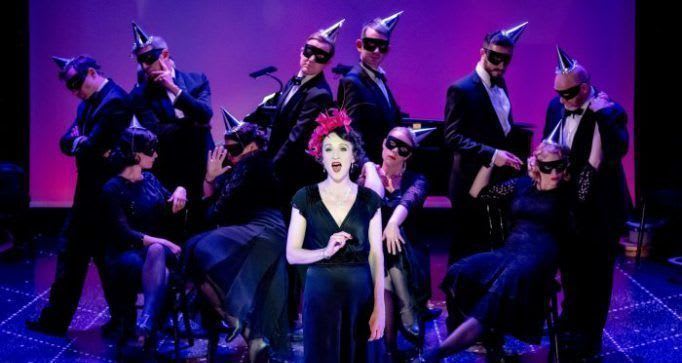Following their joyous revival of Stephen Sondheim’s Into the Woods in 2016, Opera North and West Yorkshire Playhouse—two of Leeds’s leading arts companies—have reunited to celebrate one of the 20th century’s greatest composers, Kurt Weill.
First devised by Gene Lerner in 1972, with arrangements by Newton Wayland, Berlin to Broadway takes the audience on a chronological journey through Weill’s music, from The Threepenny Opera in 1928 to Lost in the Stars in 1949. These musical numbers, many of which have become standards, are punctuated with helpful biographical titbits that help us to understand how Weill’s career was shaped by his tumultuous personal life.
The evening is divided into two halves, with the first covering Weill’s collaboration with Bertolt Brecht in pre-WWII Berlin. As one would expect, the first half draws heavily upon The Threepenny Opera, but there also songs from lesser-known works such as Happy End (1929) and Rise and Fall of the City of Mahagonny (1930).
The evening gets off to a subdued start with a sinister but underpowered rendition of “The Ballad of Mack the Knife”, which has been covered by everyone from Louis Armstrong and Frank Sinatra to Michael Bublé and Westlife.
However, things soon liven up, with the Opera North Chorus confidently inhabiting some of Brecht’s most provocative lyrics. Highlights from the first half include “Pimp’s Tango”, in which Amy Freston and Dean Robinson deliver a seductive duet with suitably staccato dance moves, and a goosebump-inducing performance of “The Duet of the Cranes” from Lorna James and Nicholas Watts.
To escape the rising tide of Nazism, Weill moved to Paris in 1933 before relocating to New York in 1935. Prior to his death in 1950, he collaborated with a series of notable writers, including Langston Hughes, Maxwell Anderson, Ogden Nash and Ira Gershwin. The second half of the show celebrates Weill’s career in the USA and is far more jubilant in tone.
The spirit of Broadway is captured in a series of ebullient group numbers, including “Ice Cream” (where the ensemble swap their homburgs for straw boaters), “Wouldn’t You Like to Be on Broadway?” and “That’s Him”. However, it was the more sombre songs that got under my skin, particularly “September Song” and “Lonely House”, which were sung with great feeling by Dean Robinson and Alex Banfield.
The calibre of the Opera North Chorus cannot be doubted, nor can the contribution of Martin Pickard whose piano arrangements are a constant delight.
I wouldn’t normally talk about the theatre in which a production is staged, but in this case it is instrumental to the overall ambience of the piece. Long regarded as one of the North’s cultural jewels, the Leeds City Varieties is a rare surviving example of the Victorian musical hall, and its old-time elegance and glamour add immeasurably to the experience of watching Berlin to Broadway.
In my two years of reviewing Opera North productions, I’ve yet to give the company a bad review—and I have no intention of starting now. For an evening of sophisticated musical pleasure, I strongly recommend Berlin to Broadway.
